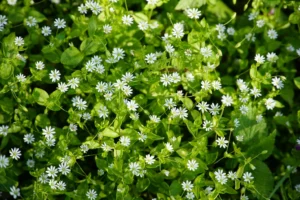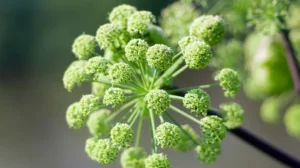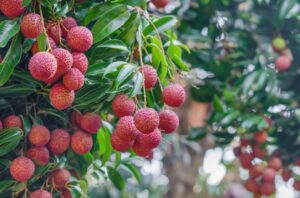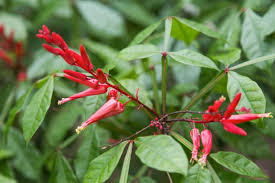Rosemary for Cognitive Health: A Natural Boost?

Rosemary has long been cherished for its medicinal properties, especially for its potential cognitive-enhancing abilities. Traditionally, rosemary has been used in folklore to boost memory and mental clarity. In recent years, scientific research has further explored whether rosemary can positively impact cognitive function, particularly in aging populations and individuals experiencing early signs of memory decline.
Cognitive Enhancements with Rosemary:
A comprehensive clinical trial at Northumbria University examined how exposure to rosemary essential oil influenced cognitive performance, specifically focusing on memory retention. The research revealed fascinating results: participants who were exposed to the scent of rosemary showed noticeable improvements in their ability to recall information. These individuals performed memory-related tasks with greater speed and accuracy than those in the control group. Researchers attribute this effect to a compound in rosemary called 1,8-cineole, which is believed to interact with neurotransmitters in the brain that are involved in memory formation and retention.
The study further noted that rosemary might also assist with improving mental clarity and focus, which could be beneficial for individuals struggling with concentration or cognitive fatigue. Preliminary results suggest that rosemary’s influence on brain chemistry may have applications in treating conditions like mild cognitive impairment and even Alzheimer’s disease. However, it’s important to acknowledge that these findings are still in their infancy. More extensive studies are needed to fully validate rosemary’s therapeutic potential and to determine the optimal methods and dosages for harnessing its effects.
Some researchers also speculate that rosemary might work as a neuroprotective agent, helping to prevent oxidative stress and inflammation in brain cells, two factors often linked to neurodegenerative conditions. This protective mechanism adds a layer of intrigue, suggesting rosemary could support long-term brain health when used consistently over time.
Growing Popularity in Cognitive Supplements:
With the growing body of evidence supporting rosemary’s cognitive benefits, it has increasingly found its way into the world of cognitive-enhancing supplements. Companies have started marketing rosemary-based products targeted at seniors and individuals looking to protect against age-related memory loss. These supplements often blend rosemary with other herbs like ginkgo biloba and sage, which are also known for their brain-boosting properties.
One of the most significant shifts is the rise in popularity of rosemary oils, capsules, and teas designed specifically to enhance mental function. Many seniors and those concerned about dementia prevention are incorporating rosemary into their daily routines, either through essential oil diffusion, ingestible supplements, or by using rosemary-infused foods and beverages.
However, medical professionals advise caution when relying solely on herbal supplements. Experts highlight that while rosemary shows promising early results, it’s essential not to view it as a stand-alone solution for cognitive decline. A balanced diet, mental exercises, regular physical activity, and proper sleep are still crucial components of cognitive health. Moreover, healthcare providers suggest that individuals consult with a doctor before using rosemary supplements, especially those with pre-existing conditions or those already on medications, as the herb could interact with other treatments.
In particular, some supplements containing rosemary extract are enhanced with bioactive compounds to increase their efficacy. These formulations are designed to improve absorption and bioavailability, ensuring that the active compounds in rosemary can reach the brain and exert their benefits. Despite these innovations, more research is needed to understand which formulations are most effective and how individuals can best integrate rosemary into their daily health regimes.
Additionally, as rosemary-based products grow in popularity, consumers are increasingly looking for organic, sustainably sourced options, driving demand for high-quality, ethical products. Brands are responding by offering transparency about the sourcing and purity of their rosemary, reflecting a broader trend toward natural and environmentally friendly health solutions.

Recipe Template
Hibiscus Flowers The overall appearance of hibiscus flowers is bold and exotic, making them a popular choice for gardens, decorations, and floral arrangements. Their stunning

Chickweed
Chickweed Chickweed is a small, delicate annual herb that thrives in cool, moist environments. It is commonly found in gardens, lawns, and meadows, often considered

Angelica Root
Angelica Root Angelica Root, derived from the Angelica archangelica plant, is a powerful herb that has been used for centuries in traditional medicine and spiritual

Ivy
Ivy Ivy (Hedera helix), also known as English Ivy, is a common evergreen climbing plant known for its distinctive lobed leaves and ability to cover

Lychee Berries
Lychee Berries Lychee Berries are tropical fruits known for their sweet flavor and distinctive appearance. They are highly valued in culinary applications and traditional medicine

Quassia
Quassia Quassia is a tropical shrub or small tree, scientifically known as Quassia amara, commonly found in the rainforests of Central and South America. It